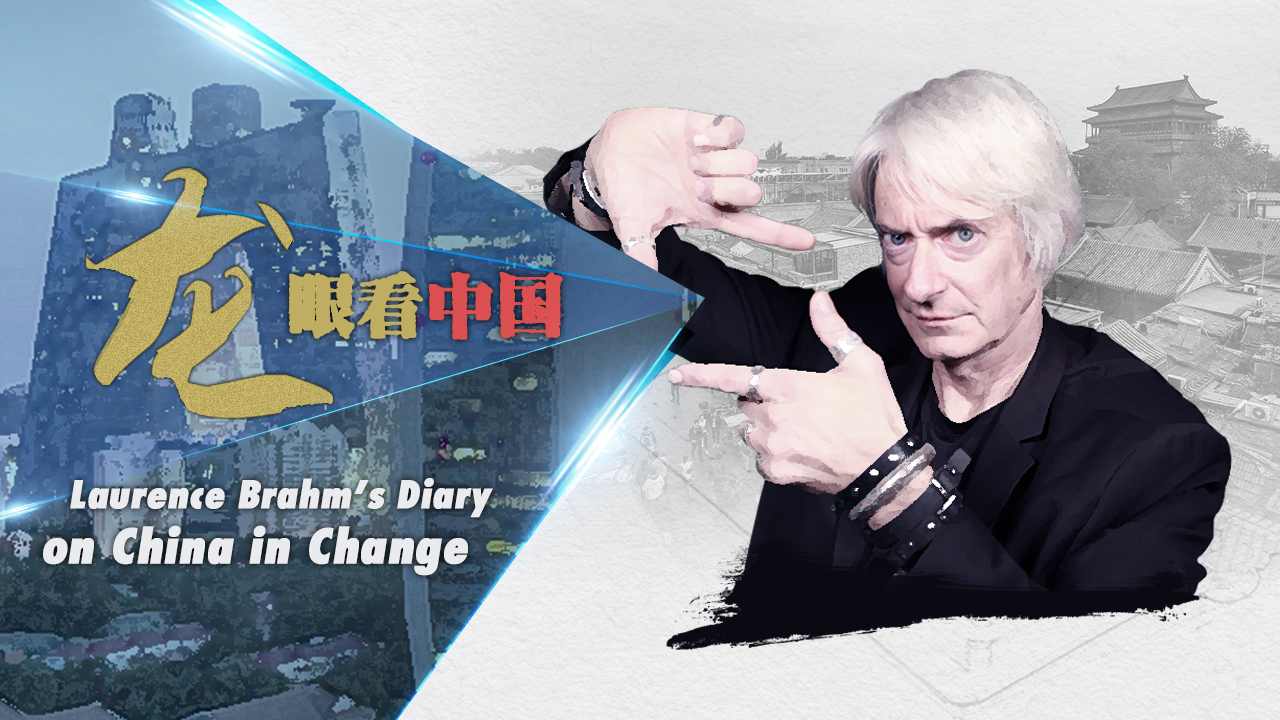
Opinions
08:59, 23-Dec-2018
How to eliminate Western stereotypes against China?
Updated
08:36, 26-Dec-2018
Laurence Brahm
03:20

Editor's Note: As a lawyer, policy adviser, filmmaker and social enterprise pioneer, Laurence Brahm is not only a keen observer but an active participant in China's reform and opening-up. "Laurence Brahm's Diary on China in Change" is a special series dissecting the colossal changes Brahm has witnessed in his 37-year stay in China. In the ninth episode, Brahm shares his views with CGTN on Western stereotypes against China.
CGTN: Why do some Westerners hold prejudices against China?
Brahm: On the political level, there may be interests that want to reinforce stereotypes, that want to create conflict, that want to leverage conflict for individual gain. We see that in our American politics today: everything is about conflict. Does it need to be about conflict? Of course not. Are people using conflict for power, for money? Of course they are. And that's why they're fostering conflict.
So a lot of the prejudices created against China are being done for economic or political interests. Very often those interests are aligned, working together and trying to seek a kind of common objective. If we can get more and more people to talk together and understand that those political and economic interests that are fostering conflict are working against the interest of people, then we can change that. And we need to change that soon before those interests are going to create more conflict on our planet, which doesn't benefit anyone and hurts everyone.
CGTN: How to reduce misunderstandings among different countries?
Brahm: I think it's a question of expanding the bandwidth of understanding. The more we understand something, the less we're afraid of it. Fear arises from a lack of understanding. Fear arises from the unknown. And I think one of the things that's happening now with more and more foreign students coming to China and more Chinese students going abroad is a lot of the barriers that were in older generations are coming down. They're coming down quite quickly.
It's one thing to read about China in a newspaper or see it on the news. It's another thing to have gone to China to study, to live, to work, to be with people, to make friends locally. I think on the people-to-people level, people are open; people want to accept; they want to know more; they want to share. And I think on the people level, we can get away with prejudice and we can break stereotypes. I think it's this type of people-to-people communication. If it can be brought up to the level of politicians, then there will be no trade wars and there will be no conflicts.
CGTN: What changes do you see in China's diplomacy over the years?
Brahm: When China began the reform and opening, Deng Xiaoping basically said: keep your head down; don't try and get involved in too many international issues; focus on economic development. That's what China did. And for years, China's diplomacy was economic diplomacy. It was the diplomacy around trade and investment. Now it's not just about investment coming to China. China is investing all over the world.
So, of course, China has an increased stake in being a stakeholder in global peace and global prosperity, because it's not just about the economic development of China, but the economic development and stability of the entire world.
Stories in this series:
Reporter: Liu Jianxi
Creative planning: Liu Jianxi
Videographers: Wang Yucheng, Wu Jinjing
Video editors: Zhong Jianli, Xu Qianyun
Producer: Wei Wei
Supervisor: Zhang Shilei
(If you want to contribute and have specific expertise, please contact us at opinions@cgtn.com.)

SITEMAP
Copyright © 2018 CGTN. Beijing ICP prepared NO.16065310-3
Copyright © 2018 CGTN. Beijing ICP prepared NO.16065310-3